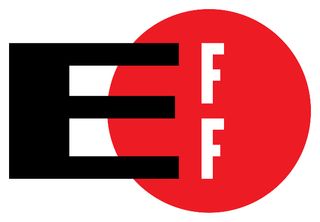EFF Wants Retailers To 'Warn' Consumers About DRM Lock-In On Their Product Labels

The Electronic Frontier Foundation (EFF) is taking a new approach to fighting Digital Rights Management (DRM) software. The organization asked the U.S. Federal Trade Commission (FTC) to create “fair labeling” rules for retailers so they can warn consumers about DRM restrictions that may come with the products they’re buying.
Cory Doctorow, a sci-fi author, journalist, and anti-DRM activist, joined the EFF last year to help it fix bad copyright laws and to “eradicate DRM everywhere.” His latest plan to fight DRM includes getting the FTC to mandate that retailers tell the truth about DRM and what it does to the products consumers buy every day.
“These digital locks train your computerized devices to disobey you when you ask them to do things the manufacturer didn't specifically authorize -- even when those things are perfectly legal,” Doctorow said in a recent post.He noted that “Companies that put digital locks on their products -- ebook, games and music publishers, video companies, companies that make hardware from printers to TVs to cat litter trays -- insist that DRM benefits their customers, by allowing the companies to offer products at a lower price by taking away some of the value -- you can "rent" an ebook or a movie, or get a printer at a price that only makes sense if you also have to buy expensive replacement ink.We don't buy it. We think that the evidence is that customers don't much care for DRM (when was the last time you woke up and said, "Gosh, I wish there was a way I could do less with my games?"). Studies agree,” he added.
In other words, Doctorow is trying to fight the content industry’s argument that DRM is there for the user’s benefit, when in fact it’s there to stop users from modifying their content in any way. The FTC is the agency responsible with ensuring that consumers aren’t ripped off when they buy various products. However, according to Doctorow and the evidence the EFF and other organizations have presented the FTC, that’s exactly what the DRM-enabled products are doing to customers.
In a letter to the FTC, the group presented 20 EFF supporters who purchased DRM-encumbered products, only to later discover that their products had severe limitations. Some examples include:
- a travel guide that required a live internet connection to unlock, making it unreadable when on vacation and away from a stable internet connection
- a cat litter box that worked only if resupplied with expensive perfume
- a game that "bricked" a customer's DVD-R drive
The EFF is already suing the U.S. government to invalidate Section 1201 of the DMCA, which makes it illegal for security researchers to break digital locks in order to test the security of various systems.
DRM also makes illegal things that would otherwise be legal, such as putting an ebook that you purchased on an alternate reader. This would normally be legal, but because most ebooks are DRM-enabled, and because breaking DRM is illegal, then all DRM-enabled books can’t be legally read on another device without committing a crime.
Stay on the Cutting Edge
Join the experts who read Tom's Hardware for the inside track on enthusiast PC tech news — and have for over 25 years. We'll send breaking news and in-depth reviews of CPUs, GPUs, AI, maker hardware and more straight to your inbox.
Doctorow said that until that lawsuit is won and until people can fix their devices without legal retaliation, they won’t be completely rescued from DRM. However, this is why it’s so urgent for the FTC to demand from retailers that DRM-enabled products are properly labeled, so consumers know what they can expect from the products they’re buying.
With the rise of the Internet of Things and the "smartification" of everything around us, more manufacturers are considering putting DRM on their products to limit what customers can do with these devices. For instance, a coffee maker vendor such as Keurig can enable DRM so that customers buy only the necessary cups from them, and so on. This way, vendors can lock in customers and inhibit competition, because consumers are then less likely to move to a competing product. Government agencies such as the FTC can step in early to ensure that a healthy level of competition is maintained, before most manufacturers start enabling DRM on all of their products.
-
Kimonajane Follow the money and you will find the culprits for unfair laws and rules. Including scumbag politicians and bureaucrats who make these over top laws and regulations which is a law without representation.Reply -
jeremy2020 What a novel idea...to let people know what they're actually buying and when they don't actually "own" what they paid for...Reply -
ravewulf Good cause, but chances are it won't do much until we get money out of politics so corporations no longer have such a strong influence over our government.Reply -
targetdrone You know DRM has run amuck when a coffee maker is DRM locked to use manufacture only brew podsReply -
I volunteered for a charity making food boxes for poor people. We had a lot of expired Keurig boxes donated. Since poor people didn't have the machines, we broke open each 'k-cup' and dumped the coffee in regular coffee boxes. It takes like 200 of those little k-cups to fill out a regular coffee bag. All us volunteers couldn't believe what a scam those single serving cups are. And the huge amount of packaging, it's awful for the environment. Should be illegal.Reply
-
DeadlyDays lol there is a reason I don't drink those single serve junk. Dirty water is all it is. If you can see through your coffee, it isn't coffee. buy a grinder and a French press/drip machine and save yourself. A food processor works for grinding beans if you aren't picky and you'll get way better than that cup crude or even pre-ground.Reply
Most Popular





